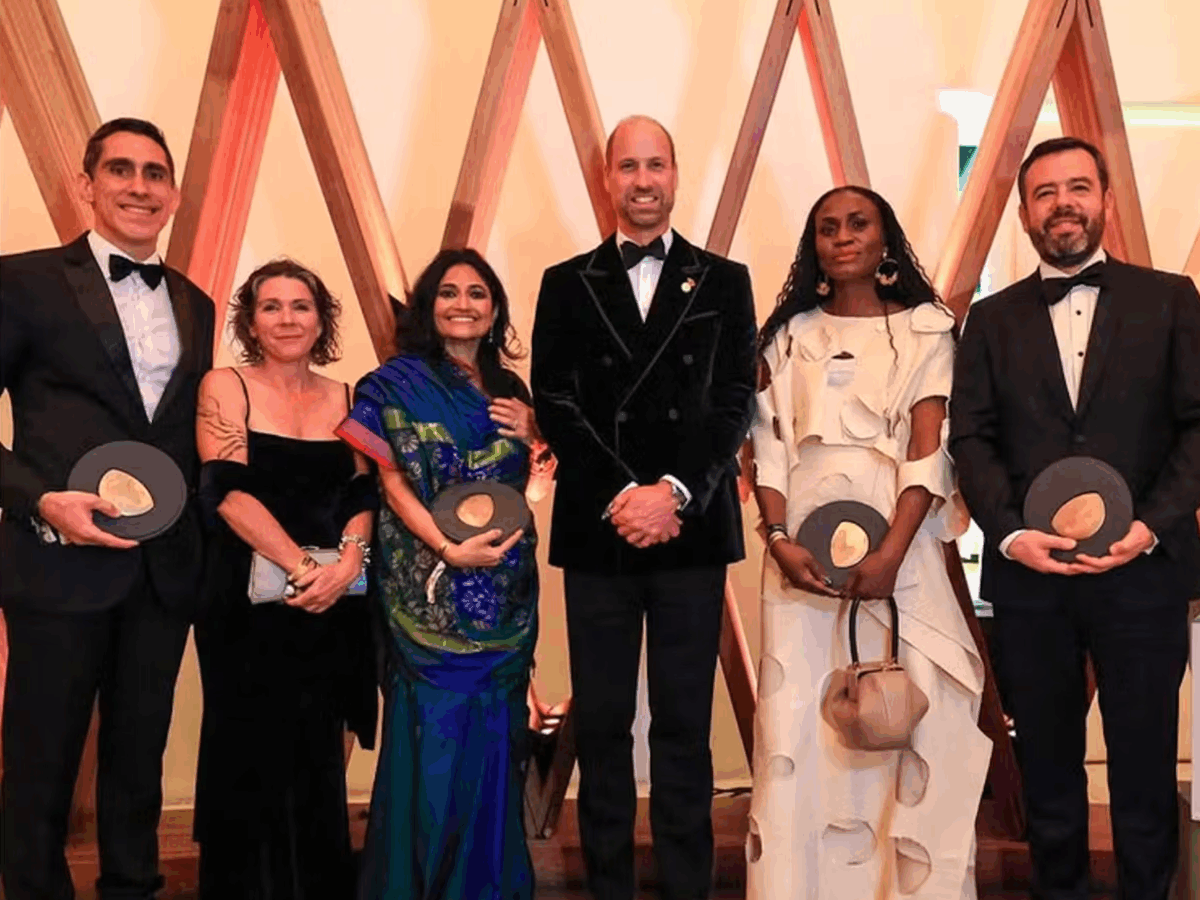
Friendship wins Earthshot award
The NGO Friendship has won the prestigious Earthshot 2025 award in the «Fix Our Climate» category, the world's highest environmental distinction, presided over by HRH Prince William. A historic first for an NGO from Bangladesh and Luxembourg!
The social organisation Friendship has won the Earthshot 2025 award in the «Fix Our Climate» category for its integrated and holistic climate adaptation model, which takes into account the seventeen Sustainable Development Goals (SDGs). The award, considered to be the world's most prestigious environmental distinction, was presented at a ceremony in Rio de Janeiro, Brazil, on 5 November 2025.
Friendship was recognised for its innovative integrated development and climate adaptation model, based on four core commitments: saving lives, reducing poverty, adapting to climate change and empowering people. This integrated development framework provides sustainable, adaptable and replicable solutions that improve lives through a participatory, nature-based and locally driven model, recognising that no aspect of development can succeed in isolation. Friendship's integrated development model has been specifically designed on the premise that all 17 SDGs must be addressed to have a substantial and holistic impact and drive sustainable change. This model ensures that every aspect of development is taken into account, with each element supporting the others afin order to improve overall quality of life and livelihood prospects.
Since 2018, the Friendship mangrove reforestation project has been a flagship initiative of this integrated model. The solution was tested thanks to the support of the Luxembourg Ministry for the Environment, Climate and Biodiversity, as part of its international climate financing strategy. The reforestation was able to expand thanks to private donors from Belgium, France, the Netherlands and Luxembourg, including Banque Raiffeisen, which contributed to the financing of the planting of 60,000 trees through the use of their credit cards by their customers, an initiative also carried out in partnership with the Hëllef fir d'Natur Foundation.
Mangroves strengthen the resilience of vulnerable coastal communities. These ecosystems represent one of the most efficacious natural defences, and Friendship's restoration model has a proven track record that can be deployed on a larger scale. Luxembourg's pioneering partnership provided the impetus to test and refine this nature-based solution, which has since demonstrated its efficacy and ability to build climate resilience. In concrete terms, to date the project has planted over 650,000 trees on more than 200 hectares near the Sundarbans in southern Bangladesh, protecting 60 kilometres of dykes. These mangroves protect more than 125,000 people from cyclones and storms, while providing livelihoods for nearly 3,000 households through ecosystems managed by local communities. The project also strengthens the blue carbon ecosystem, acting as a major carbon sink (15,000 tonnes of CO2 removed from the atmosphere as a result of Friendship's plantations) and contributing to a sustainable blue economy.
By 2030, Friendship plans to extend the superficie to 1,500 hectares, in line with Bangladesh's National Adaptation Plan (2023-2050) and Forest Master Plan (2017-2036).
Accepting the award on behalf of Friendship, Runa Khan, founder of the organisation, said: «It is a huge honour for us to be the first in Bangladesh to receive the Earthshot Award. The award celebrates the resilience and innovation of marginalised communities in Bangladesh. Our success is collective, and particularly that of the people we work with and for. This award reinforces our commitment and responsibility to pursue our mission with even greater passion.
This recognition from the Earthshot Award underlines Friendship's belief that community-based and nature-based solutions can create real and lasting resilience, not just for Bangladesh, but for vulnerable regions around the world.
Just before COP 30, this award is a very positive sign. Investing in the environment, in climate mitigation and adaptation, in the restoration of ecosystems and biodiversity, brings nothing but bénéfices. Not necessarily financial benefits, but above all human benefits. Starting from a very complex context in one of the countries most exposed and vulnerable to climate disasters, this recognition can serve as an inspiration to others, public authorities and private players, in Bangladesh and elsewhere, by providing proof that adaptation solutions involving local communities as closely as possible are the best guarantee of efficacité there is.

